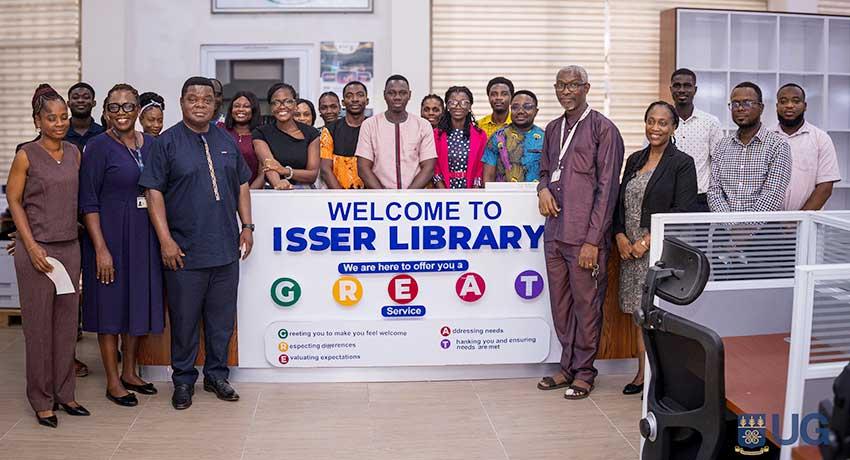ISSER’s ReFinD Research Initiative signs strategic partnerships with leading financial service providers to drive financial inclusion through research solutions
Tara Squire, Regional and Consumer Head at Ecobank Group, Jacqueline Mpare, Head of Agency Banking at Ecobank Group, and Prof. Peter Quartey celebrate the signing of a pivotal agreement aimed at advancing financial inclusion through research and innovation.










